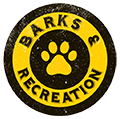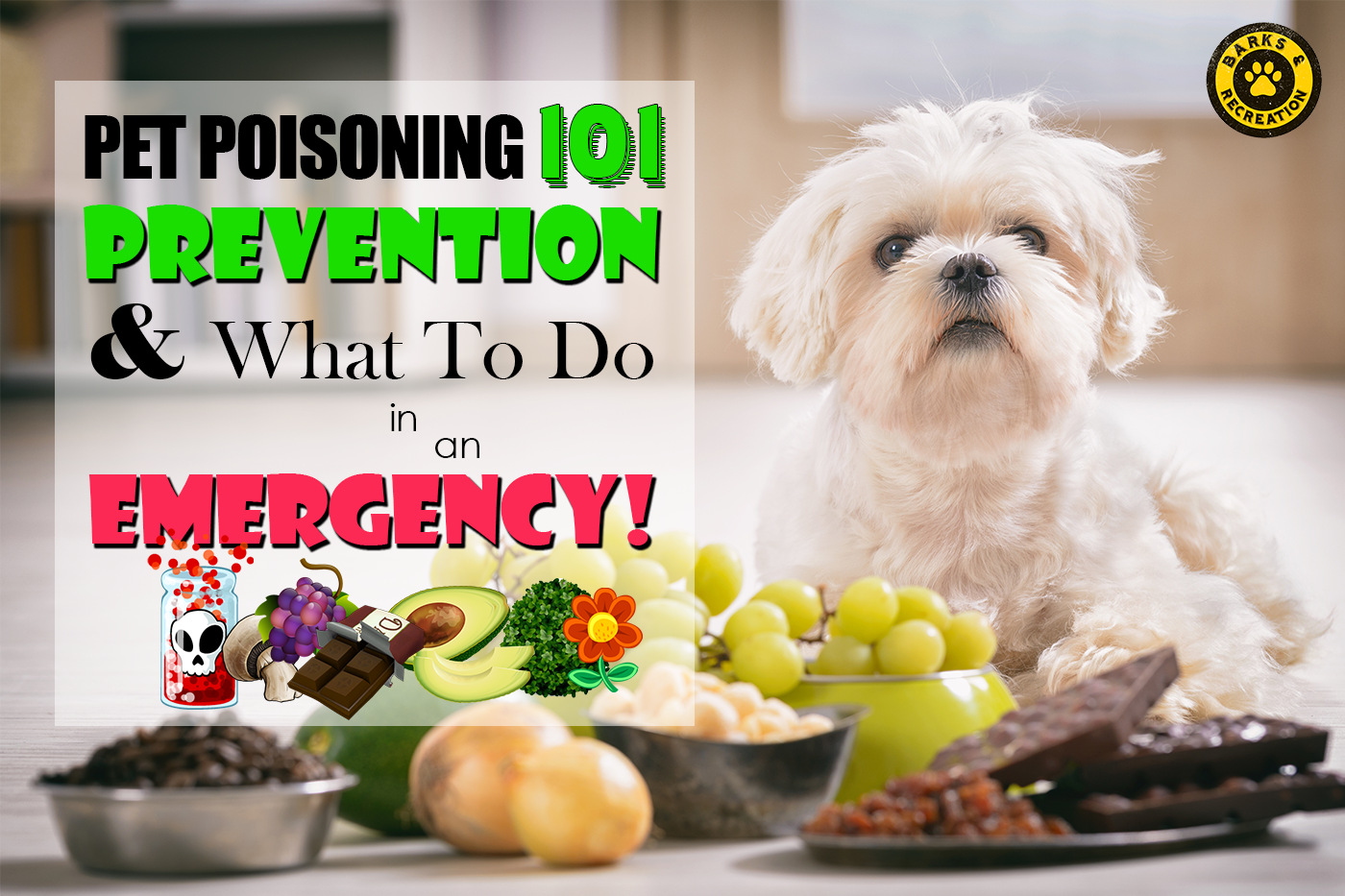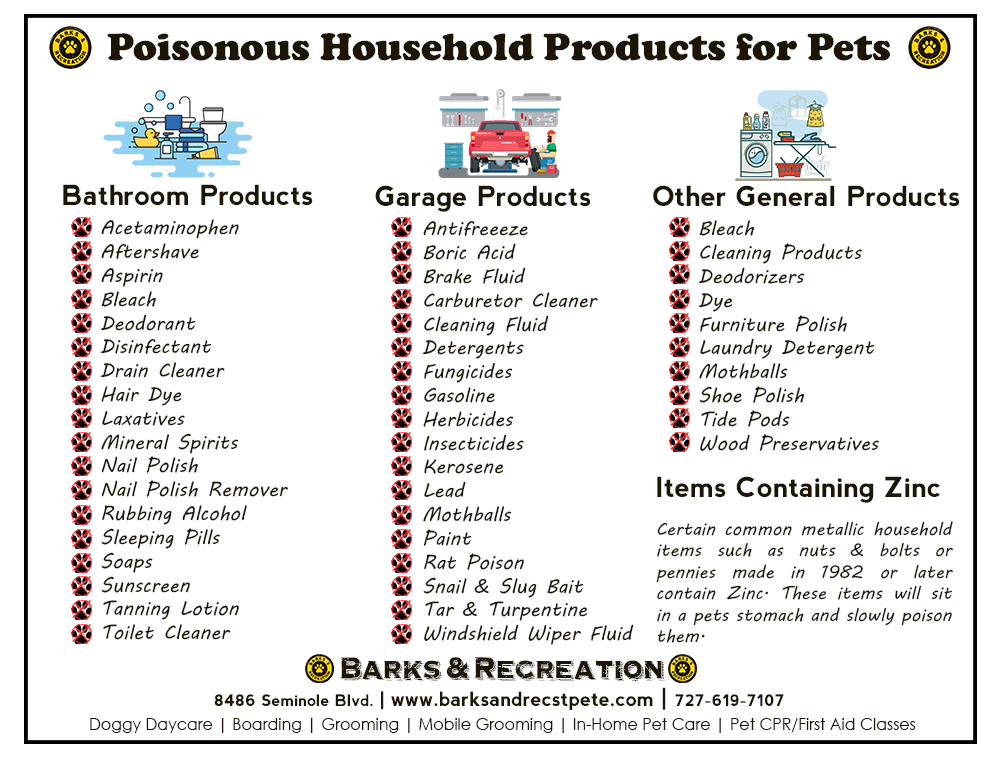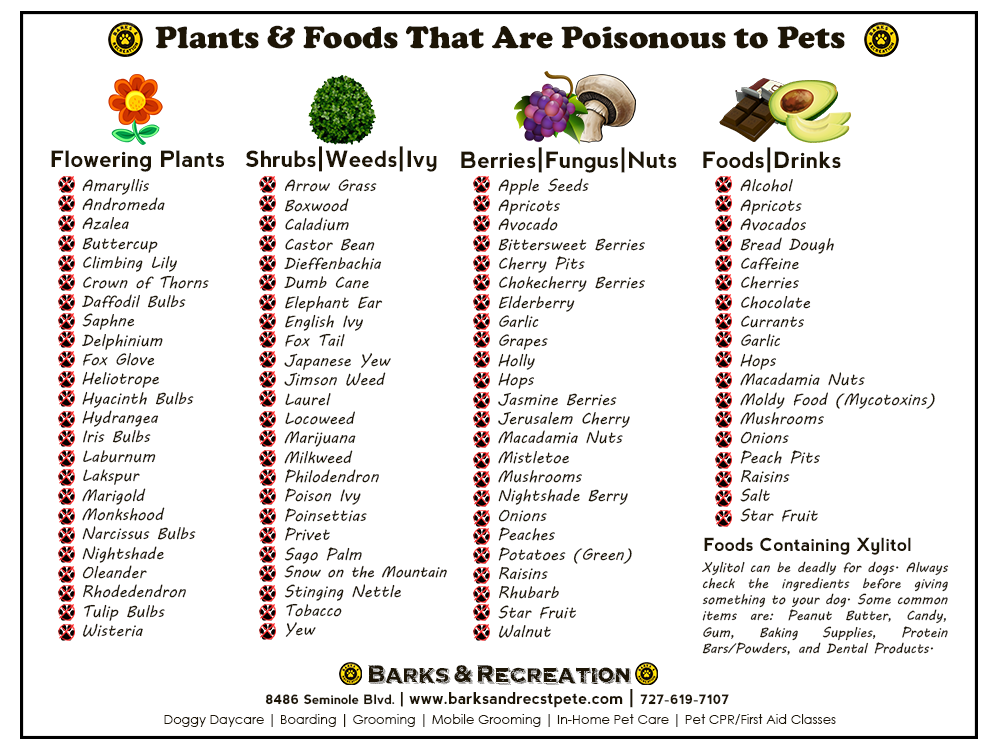Pet Poisoning 101: Prevention & What to do in an Emergency
Pet poisoning is one of the most common preventable accidents seen in dogs and cats. Many substances that are non-poisonous to humans can be fatal for pets. Most cases of poisoning in pets can be prevented by educating yourself and keeping poisonous materials out of harm’s way. At the end of this article there will be a list of common plants and household products that are poisonous to pets. There is also a PDF that you can print out and keep on the refrigerator or a common area of your home. Remember you are the first line of defense for your pets in an emergency situation. There is no 911 for pets, so the sooner you can assess and help get them to a vet, the higher their chance for survival!
Pet Poisoning Emergency!
What Do You Do In An Emergency Situation?
Take a deep breath and try to clear your mind.
One of the most important things to remember during an emergency situation is to stay calm. If you enter an emergency situation while panicking it will be twice as hard for you to help your pet. It can also lead to you making critical mistakes or even putting yourself in danger.
Check your surroundings for danger
If you run into a situation without stopping to check your surroundings you might very well be the next victim! Make sure to stop and look around, see if there are any clues as to why your pet is unresponsive. If the environment is free of any visible or audible dangers then proceed.
Prevention
Baby (Pet) Proof Your Home!
Just like new parents have to get down on their hands and knees and assess the possible dangers their home might possess for their newborn, so should you for your fur baby! Walk around your home and find any possible trouble areas such as:
- Easily opening cabinets or doors that contain chemicals.
- Poisonous plants (for pets)
- Make sure that they don’t have unsupervised access to places like the garage or basement where many petroleum or corrosive substances are stored.
- Compare our list of common plants that are poisonous to pets and make sure none of them are in your yard or garden.
Know The Signs of Poisoning
- Excessive Salivation
- Breathing Difficulty
- Excitability
- Loss of Consciousness
- Seizures
- Vomiting
- Diarrhea
Disclaimer:
The information in this blog is meant for educational and prevention purposes and not meant as medical advise. Consult your veterinarian in all cases of poisoning and follow their instructions explicitly.
Gather Important Information for Your Veterinarian!
- What time did the poisoning occur?
- Knowing the amount of time that your pet was exposed can help a vet determine how to treat them.
- What substance were they exposed to?
- Take all packages, bottles, and labels with you so that the vet can read the MSDS data and create a plan of action.
- If your pet has vomited, take a sample of the vomit with you in a Ziploc bag so that it can be tested if necessary.
- Before treating your pet, contact your vet or emergency pet hospital by phone and communicate the situation with them. They will be able to give you a plan of action if they feel there are steps that need to be taken before transporting them to the office/hospital.
Additional Tips
- If the substance is a dry chemical, brush off prior to irrigation as some chemicals react to water.
- If the substance is corrosive or toxic and it is on your pets skin or fur then use water to flush it off as carefully as possible. You DO NOT want to flush the substance on to new areas, only OFF of their bodies.
- Pets can become poisoned by walking through substances and licking it off of their paws. Be careful while walking them not to let them walk through any unknown liquids or powders.
- Garbage Poisoning: Pets can get poisoned by eating things found in garbage that you normally would have locked away or kept out of reach. Be careful what you put in the garbage if your pet has the ability to get into it.
- There IS a nationwide pet poisoning hotline that can help in an emergency. However, they DO charge a fee to help. It costs $65, they will do as many follow-up calls as needed or at the owners request contact the veterinarian to discuss treatment options. The number is (888) 4ANIHELP or (888) 426-4435 you can learn more at their website: https://www.aspca.org/pet-care/animal-poison-control





